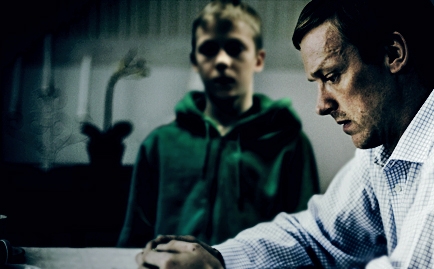
Recently, a new kind of reality show has been mixing history with celebrity, taking well-known entertainers on a journey to discover their heritage. Who Do You Think You Are?, which premiered this March on NBC and airs on Fridays, stumbled upon a formula that makes our favorite stars both relatable and lovable. Armed with an expert team of historians and network money, celebrities fly around the world to uncover their ancestry. Viewers celebrate and connect with them as their carefully crafted facade is pushed aside, revealing an individual who, like everyone, stems from stories of heartache, war, victory, love and perseverance. Watching Matthew Broderick choke up at an unknown soldier’s grave in Marietta, Ga., or listening to Lisa Kudrow make a phone call to an unknown Polish relative helps audiences remember the importance of roots, of understanding where you come from, no matter where you currently are. All of the stars say the same things afterward, staring into the cameras with teary, enlightened eyes. They feel completed, satisfied. They will never be the same.
This program taps into our instinctual desire to understand our origins. For whatever reason, we know that our genealogy shapes us, that the past somehow reflects upon the present. We want to know who to thank, and who to apologize for. The belief is that if we can get a handle on the lives that preceded ours, we will perhaps have a better grasp of who we are. The problem is that not everyone in your family was a decorated war veteran or old royalty (really, Brooke Shields?). Our bloodlines can quite easily entwine us in failures, scandals, addictions and tragedies. The more immediate the relation, the greater we are affected. It begs the question—can we inherit negative habits, traits or experiences, just as we would eye color or skin shade?
Sins of our ancestors
Within churches, this concept is often referred to as generational sin. It comes from verses like Exodus 20:5 and Numbers 14:18, which say that the sins of the fathers will be passed down. Some would even call it a curse. And while secular psychologists would shy away from the term “sin,” they still acknowledge the idea that people have a predisposition to make “a series of bad choices” based on their family history. Certainly, we’ve all been witness to families (usually our own) that seem to pass down alcoholism, infidelity, molestation, negligence, dishonesty, financial irresponsibility and other common negative behaviors. Are there ways to defy generational sin and assume control of tendencies that have attempted to destroy entire families?
Here, we could pull out the argument of nurture versus nature. This is the idea that behavior can be credited to either genetics or environment. Dr. Kevin Leman, respected psychologist and author of The Birth Order Book and What Your Childhood Memories Say About You, says it’s a combination of both. “Dysfunctional families beget dysfunction,” he explains, adding that even children adopted from birth may have tendencies that mirror their biological parents. It seems apparent that family plays a huge role in the people that we become, whether because of their DNA or their MO.
So, how do we recognize and remove such hereditary habits? Perhaps you’re reading this and thinking of some vices you’ve duplicated from your relatives. It’s a dangerous place to be—accepting generational sin as truth can make you feel stuck, doomed to repeat the same mistakes. But whether you believe you are cursed or corrupted … you also are free. All of our sin, generational or not, has been forgiven and the presence of any curse is obliterated in light of the sacrifice that Christ made for us (Galatians 3:13). Maybe your grandfather was a racist, maybe your mother was an alcoholic, but your ultimate origin is a loving Father God who is forever in your corner and went to great lengths to ensure your freedom and renewal.
But while we are no longer bound by sin, we often allow ourselves to wallow in it. Breaking out of generational sin is simply a matter of realizing it has no authority over you. “Your temperament will always be there, but you have to understand that you are held accountable for your own decisions,” says Leman. He compares our nature to wood grain, with certain characteristics, lines and pieces already embedded into it. Maybe you can’t change the grain, but you can take responsibility to sand, smooth and polish it.
Don’t just remember
It’s still important to communicate about your family’s past, the good and the bad. Just like a history of cancer, you need to be aware and mindful of destructive tendencies that could infect you. Don’t assume their struggles and addictions won’t tempt you. Leman says: “You’ve heard the saying ‘those who don’t remember the past are doomed to repeat it,’ but it isn’t enough to simply remember the past. You have to do something about it, otherwise the past will hijack your future.”
Lastly, you need to forgive your family for where they have failed. It could be your mother, or a long-gone relative who set the stage for a tragedy. But whoever it may be, it’s important that you don’t harbor bitterness or resentment toward them. As Leman says, “Forgiving is not saying what happened was okay and it’s not excusing it, but it is allowing something new to grow.”
Discovering your roots doesn’t just allow you to acknowledge them, but to prune, water and plant accordingly. Nurture the areas where there is life: professional or personal successes, loving family members, humorous memories and treasured traditions. It’s never too far gone to bear fresh fruit.




















